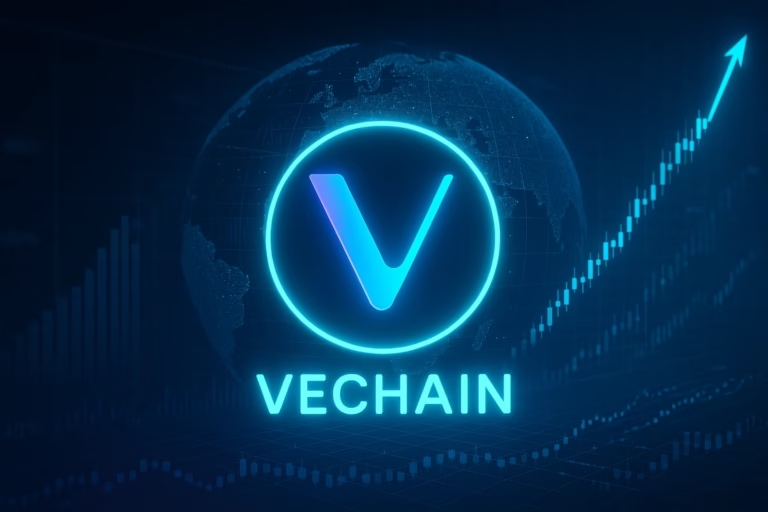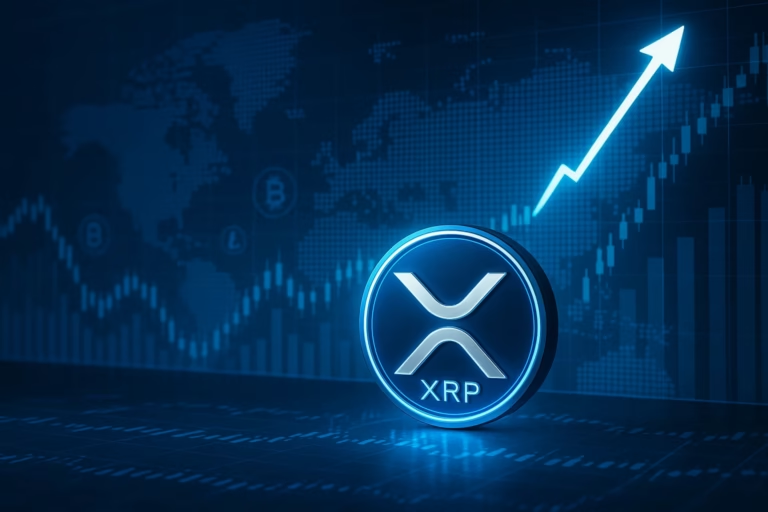
- ONDO Finance and Chainlink are transforming real-world asset tokenization by enabling secure cross-chain transactions between traditional finance and blockchain.
- This innovation is making financial markets more efficient, transparent, and accessible to a broader range of investors.
The financial world is undergoing a quiet revolution. Tokenization — the process of converting real-world assets into digital tokens on a blockchain — is transforming how assets are traded, settled, and managed. With an estimated $590 trillion market value poised for tokenization, this shift goes beyond technology. It reimagines the entire financial landscape. Leading this transformation are ONDO Finance and Chainlink, two innovators driving real-world asset (RWA) tokenization forward.
ALSO READ:Ethereum Price Surge Continues: Is $3,000 Within Reach in May 2025?
ONDO Finance: Connecting Traditional Assets to Blockchain
ONDO Finance is pioneering infrastructure that bridges traditional financial assets, such as U.S. Treasuries, with blockchain networks. Their recent collaboration with JPMorgan and Chainlink to test cross-chain settlement of tokenized treasury funds marks a milestone. This experiment showcased how public and permissioned blockchains can seamlessly interact, drastically reducing settlement risks and operational costs.
ONDO’s partnerships with financial powerhouses like BlackRock and JPMorgan highlight its credibility and potential to reshape markets. Nathan Allman, ONDO’s CEO, described the testnet transaction as “not just a major milestone; it’s a statement about the future of finance.” By focusing on tokenizing real-world assets, ONDO is creating more accessible, efficient, and transparent financial markets.
ALSO READ:SEC Delays Bitwise 10 Crypto ETF Approval Including XRP and Ethereum
Chainlink: The Oracle Powering Cross-Chain Integration
Chainlink serves as the crucial connective tissue in this ecosystem. As a leading blockchain oracle, Chainlink provides reliable data feeds and ensures interoperability between different blockchain networks. This infrastructure is essential for secure and compliant cross-chain transactions — a key step for institutional adoption of tokenized assets.
Chainlink’s role in the collaboration with ONDO and JPMorgan highlights its ability to facilitate complex financial transactions. Sergey Nazarov, Chainlink’s co-founder, emphasized the growing interest from institutional players in public blockchains, underscoring the need for robust technical standards and cross-chain functionality.
Tokenization’s Impact on the Financial Industry
Tokenization promises several key benefits: increased liquidity, enhanced transparency, reduced costs, and broader access for investors. By digitizing traditional assets, markets can open to more participants and operate more efficiently. This shift is not theoretical — it’s already underway. Major institutions like BlackRock and JPMorgan are actively exploring tokenized assets to modernize their portfolios and operations.
Looking Ahead: ONDO, Chainlink, and the Convergence of TradFi and DeFi
The collaboration between ONDO, Chainlink, and JPMorgan signals a growing convergence between traditional finance (TradFi) and decentralized finance (DeFi). As more institutions adopt on-chain assets, the infrastructure enabling these transactions becomes critical.
In the words of BlackRock’s CEO Larry Fink, “The next step going forward will be the tokenization of financial assets.” With ONDO and Chainlink leading the charge, the future of finance promises to be more efficient, transparent, and inclusive than ever before. This quiet revolution is unfolding — and it’s set to change finance forever.
MIGHT ALSO LIKE:Can Pi Network Overcome Sell-Off Pressure After MEXC Listing?
DISCLAIMER:
The views and opinions expressed herein are solely those of the author and do not necessarily reflect the views of the publisher. The publisher does not endorse or guarantee the accuracy of any information presented in this article. Readers are encouraged to conduct further research and consult additional sources before making any decisions based on the content provided.




